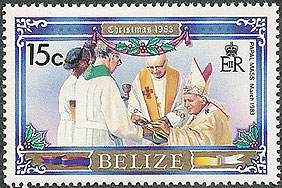
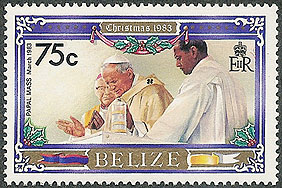
BELIZE, Christmas 1983, marking Pope John Paul II's visit that year, Scott 695-696
ALSO SEEN |
Pope John Paul II & his assistants


BELIZE, Christmas 1983, marking Pope John Paul II's visit that year,
Scott 695-696
While Pope John Paul II is clearly the focus of this issue, two Jesuits can be seen attending him during the papal Mass on March 9. On the 15 cent stamp Jesuit Bishop Robert L. Hodapp (1910-1989) in gold stole assists the Pope as he receives the gifts. Fr. John J. Stochl, SJ (1924 - 2016), wearing a green stole, is one of those presenting the gifts. On the 75 cent stamp and an Easter 1986 souvenir sheet stamp (below) Bishop Hodapp appears again on the Pope's right. Bishop Hodapp was bishop of Belize from 1958 to 1983. Fr. Stochl is a Missouri Province Jesuit who worked in Belize in prison and radio ministry.
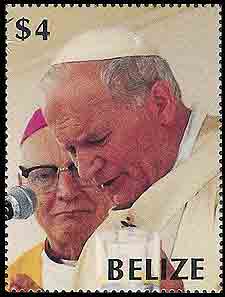
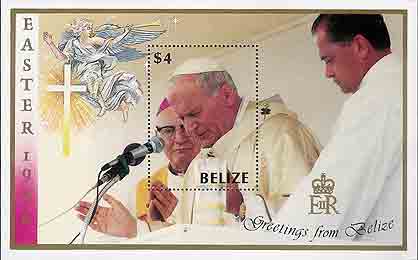
BELIZE, Easter 1986, Scott 808
Jose
Rizal & his advisors
Fr. Jose Vilaclara, SJ & Fr. Stanislaus March, SJ

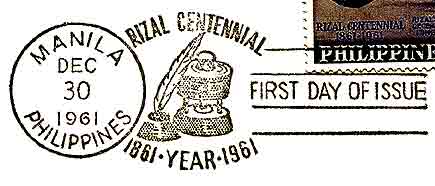
THE PHILIPPINES, 1961, the centennial of the birth of Jose
Rizal, Scott 840 & its FDI cancel
The stamp shows Rizal's execution on 30 December 1896. Recognizable by their clerical capes and hats are his two Spanish Jesuit spiritual advisors who stood by him at the last moments, Fr. Jose Vilaclara, SJ (1840-1897) and Fr. Stanislaus March, SJ (1841-1897). Some of the last words Rizal spoke were, "Everything that the Jesuits taught me was good and holy..."
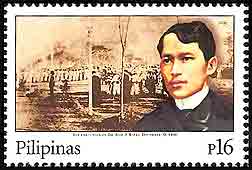
THE PHILIPPINES, 1998, The Philippine Centennial Prestige issue booklet, one page of which contains a stamp with the same execution scene and attendant Jesuits, 2550Ad
THE PHILIPPINES, 2003, the same stamp surcharged, Scott 2881. The tiniest parts of the Jesuits may also be seen on Scott 2564Fr. Ibarra ("Nim") Gonzales, SJ & the Loyola House Cross
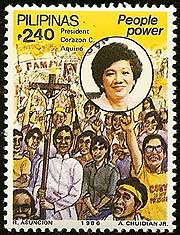
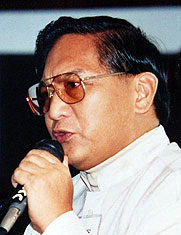
PHILIPPINES,1986, People Power issue, Scott 1797
PHILLIPINES, 1988, overprint of People Power issue, Scott 1939
PHILLIPINES, 1999, People Power, Scott 2656
PHILLIPINES, 2011, from a souvenir sheet for the 25th anniversary of EDSA People Power Revolution
with possibly a different person than Nim holding the Loyola House cross, Scott 3384eIn 1986 a series of prayerful and nonviolent demonstrations that came to be known as the People Power Revolution took place in the Philippines protesting the dictatorial regime of President Ferdinand Marcos. Most of them occurred in Epifanio de las Santos Avenues (EDSA) and so they are also known as the EDSA Revolution . More than 200,000 Filipinos marched in these events. Eventually Marcos fled the country and yielded the presidency to Corazon Aquino, pictured on the stamps. While many clerics were among the demonstrators and other crucifixes were carried in protest, among the available photos the cleric and cross in the scene above seems to resemble Fr. Nim Gonzales, SJ more than other candidates, and the cross he carried was from the Loyola House chapel at the Ateneo de Manila.